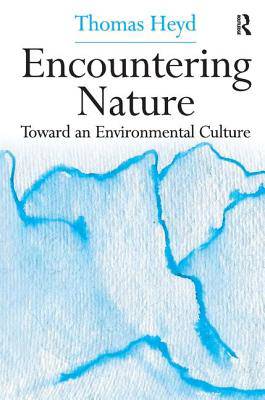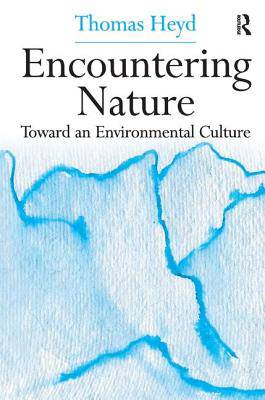
Je cadeautjes zeker op tijd in huis hebben voor de feestdagen? Kom langs in onze winkels en vind het perfecte geschenk!
- Afhalen na 1 uur in een winkel met voorraad
- Gratis thuislevering in België vanaf € 30
- Ruim aanbod met 7 miljoen producten
Je cadeautjes zeker op tijd in huis hebben voor de feestdagen? Kom langs in onze winkels en vind het perfecte geschenk!
- Afhalen na 1 uur in een winkel met voorraad
- Gratis thuislevering in België vanaf € 30
- Ruim aanbod met 7 miljoen producten
Zoeken
€ 305,45
+ 610 punten
Uitvoering
Omschrijving
This book argues that an attentive encounter with nature is of key importance for the development of an environmentally appropriate culture. The fundamental idea is that the environmental degradation that we are increasingly experiencing is best conceived as the consequence of a cultural mismatch: our cultures seem not to be appropriate to the natural environment in which we move and on which we depend in thoroughgoing ways. In addressing this problem, Thomas Heyd weaves together a rich tapestry of perspectives on human interactions with the natural world, ranging from traditional modes of managing human communities that include the natural environment, to the consideration of poetic travelogues, ecological restoration and botanic gardens. The volume is divided into three parts, which respectively consider the relation of human beings to nature in terms of ethics, aesthetics and culture. It engages the current literature in each of these areas with the help of inter-disciplinary approaches, as well as on the basis of personal encounters with natural spaces and processes. The ultimate aim of this book is to make a contribution to the development of a cultural fabric that is suitable to the natural spaces and processes in which we may thrive, and on which we all depend as individuals and as a species.
Specificaties
Betrokkenen
- Auteur(s):
- Uitgeverij:
Inhoud
- Aantal bladzijden:
- 206
- Taal:
- Engels
Eigenschappen
- Productcode (EAN):
- 9780754654230
- Verschijningsdatum:
- 28/10/2007
- Uitvoering:
- Hardcover
- Formaat:
- Genaaid
- Afmetingen:
- 156 mm x 234 mm
- Gewicht:
- 467 g

Alleen bij Standaard Boekhandel
+ 610 punten op je klantenkaart van Standaard Boekhandel
Beoordelingen
We publiceren alleen reviews die voldoen aan de voorwaarden voor reviews. Bekijk onze voorwaarden voor reviews.









